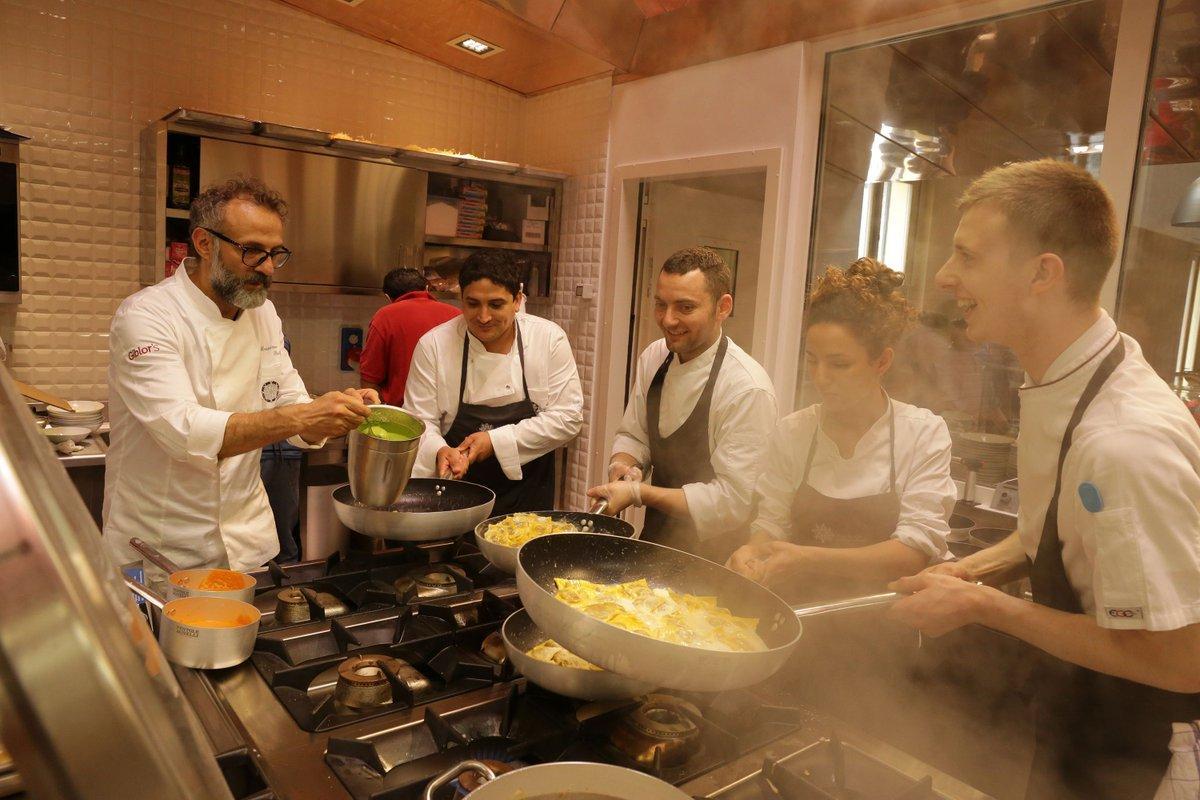Rio 2016: International chefs cooking surplus Olympic food for city's poorest residents
Italian chef Massimo Bottura launched the intitiative to tackle Rio's hunger problem

Your support helps us to tell the story
From reproductive rights to climate change to Big Tech, The Independent is on the ground when the story is developing. Whether it's investigating the financials of Elon Musk's pro-Trump PAC or producing our latest documentary, 'The A Word', which shines a light on the American women fighting for reproductive rights, we know how important it is to parse out the facts from the messaging.
At such a critical moment in US history, we need reporters on the ground. Your donation allows us to keep sending journalists to speak to both sides of the story.
The Independent is trusted by Americans across the entire political spectrum. And unlike many other quality news outlets, we choose not to lock Americans out of our reporting and analysis with paywalls. We believe quality journalism should be available to everyone, paid for by those who can afford it.
Your support makes all the difference.A group of international chefs has launched an effort to tackle the widespread hunger problem in Rio de Janeiro by cooking surplus food donated from the Olympic Village and serving it to impoverished residents.
The 31st Olympic Games in the Brazilian city have faced major criticism as the country struggles through a massive economic crisis.
However, the catering company contracted to the Olympic Village - and 11,000 competitors - says it is doing its bit by providing meals for the hungry.
Launched by chefs Massimo Bottura of Italy and Brazil’s David Hertz, RefettoRio Gastromotiva aims to produce some 5,000 meals daily using only those ingredients that would otherwise head for the bin.
“RefettoRio Gastromotiva is going to work only with ingredients that are about to be wasted … like ugly fruit and vegetables, or yogurt that is going to be wasted in two days if you don’t buy it,” Mr Hertz told Reuters.
“We want to fight hunger and provide access to good food.”
Gastromotiva will continue through the duration of the Olympics and Paralympic Games, after which it will function as a “social business”, Mr Hertz said.
The business will also provide vocational training for aspiring restaurant professionals, including cooks, bakers, and servers.
Mr Bottura drew inspiration for the Gastromotiva from a 2015 initiative, Refetterio Ambrosiano, that brought 65 chefs together to cook meals using donated ingredients from that year’s Milan World Expo.
As the Games continue and athletes rack up their medals, so do the massive protests calling out the troubles overlooked by the country’s government.
Police have been criticised for their response to protesters, launching tear gas canisters and unleashing their batons, as residents decry the spectacular price tag attached to the Olympics.
At the start games, a group called Comitê Popular Rio organised a protest called “The Exclusion Games” that highlighted those extensive costs amid the country’s recession, political strife, and public health crises.